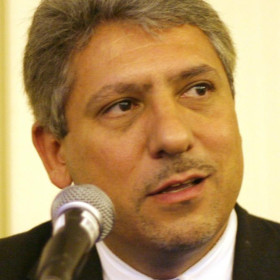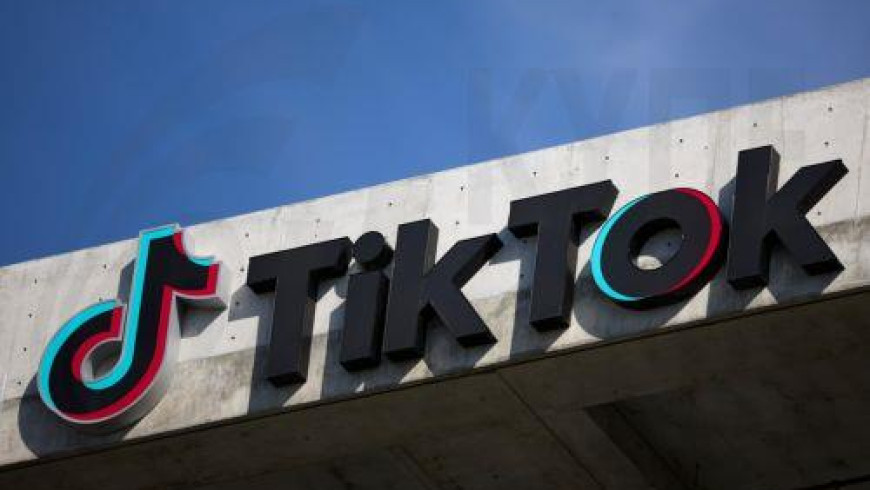Should Cyprus exit the Euro zone?

The economics and politics of gas
The Euro group finally came up with a rescue package for Cyprus. It is a bitter pill that will downscale and severely restrict its economy with much hardship in the near term, while curtailing its growth prospects in the long-term. But the agreed deal avoided financial collapse and potential forced exit from the Euro zone. Things could have turned much worse!
In Cyprus, politicians and public speakers making the TV rounds take advantage of people’s frustration and disappointment, even suggesting that Cyprus should exit the Euro zone and turn to the Cyprus pound. This would be strategic suicide!
The EU leaders and troika seemed intent to scale down Cyprus’s financial services sector, even if it would risk erosion of confidence in insured bank deposits or lead to an exit of a member country from the Euro zone with severe repercussions for financial stability.
This past week the Russians were presented with a historical opportunity to be greeted as saviors in Cyprus and simultaneously grab Cyprus’s strategic assets, including banks (with profitable operations in Russia and the Ukraine), gas reserves, even a naval base. And they said no, thank you! They did not even offer the €2 Billion amount that they would have lost through the proposed haircut on deposits in the first Euro group round (just a tenth of the loan they forgave Cuba a few months earlier).
Greece also refused desperate pleas for assistance to Cyprus and was content to take the Cypriot bank’s branches in Greece at a bargain to safeguard its own operations from the Cypriot bank haircut. Never mind that Cyprus contributed a total of nearly €10 Billion between the €4.5 Billion hit it accepted to take from the Greek debt haircut and the channeling of more than half of the €9 Billion Emergency Liquidity Assistance that Laiki Bank received and siphoned to its Greek operations during the last year. This is roughly the amount of the rescue package loan from the troika, that effectively imposed as precondition the destruction of Cyprus’ financial system and the severe weakening of its economy. Again, Greece refused the desperate Cyprus plea for a mere €2 Billion assistance (just a fifth of Cyprus’s own previous support to Greece).
Moreover, Israel makes an unprecedented apology to Turkey, effectively abandoning its hoped-for energy cooperation with Cyprus. Cyprus is left alone in the cold…
Cyprus was presented with an unprecedented gift in its two thousand year history: large amounts of natural gas reserves. According to the Guardian, experts say Cyprus could be sitting on gas reserves worth more than €300 Billion of gas reserves Noble Energy Inc. estimated 7000 billion cubic feet (bcf) in a single block covering about 40 square miles alone. Instead of enjoying wealth and prosperity, however, Cyprus’ god-given gift was turned into a curse. The natural resources curse!
The past week showed us that Cyprus was left alone in the cold. If it would bleed to death tomorrow, no one would turn a helping hand. Not Greece, not Russia, not Israel. Yet, despite the cornering and blows received these weeks from its European partners, leaving the Euro zone is not an option. It would be a strategic suicide.
Turkey might be desperate for its energy needs. It’s nearly €40 Billion current account deficit is primarily due to its reliance on oil and gas imports --Turkey lacks natural resources. Its electricity generation is mostly based on natural gas. Turkey’s huge energy needs are growing and its politicians and business people lament its overreliance on Russian and Iranian natural gas, paying through the nose through pricy contracts. Turkey may get desperate. But, according to Huriyet, the Turkish government “would not do business with any country or company that entered into a Greek Cypriot venture.”
Effectively, with the Netanyahu apology, the strategic cooperation option with Israel is closed. This strategic move suddenly reduces the value of Cyprus’s gas prospects to nearly half. With this move, and others like it, the regional geopolitics has changed drastically. Israel now gets a preferential and low-cost vehicle to enter the huge Turkish market, and through it to compete cost-effectively in the broader European market. Simultaneously, Cyprus gas exploitation costs rise abruptly and it gets locked out from several strategic options while it now faces much higher costs.
Until recently, if the amount of Cypriot gas reserves were not high enough to justify their economic exploitation by building a liquefaction (LNG) plant, a viable alternative might have been to share the cost of a larger plant by joining gas supplies with Israel. That would bring the cost down to make gas liquefaction economically viable.
With the recent Israeli apology and rapprochement between Israel and Turkey, that option is now stricken out. Without liquefaction (LNG), Cyprus cannot reach beyond Europe to target the global market and take advantage of differentiated or premium gas prices in Asia. Cyprus is henceforth limited to serve only the European (rather than reach the global) market, and essentially restricted to go through a gas pipeline to Europe. The cost of going the route of underground-sea cables might be excessive. Cyprus might thus be forced by basic economic necessity to go through a more economically viable option, such as following the same route that Israeli gas would be channeled. That might be a gas pipeline to Turkey and through it to Europe. The Cypriots are cornered as the LNG option and the ability to reach the Asian, premium-price market are severely downscaled. A remaining alternative might be Floating LNG. Together with the downsizing of Cyprus’ economy and the refusal of Russia and others to help out, the Cyprus gas growth option was suddenly cut to half. The blow came from all sides, while the patient was in intensive care. Bigger and smarter opponents made skillful strategic moves.
Russia’s interests in this game are partly linked with Israel’s, which is now shifting toward alignment with Turkey. Moreover, last December Russia started construction of a €16 Billion South Stream pipeline under Turkish waters across the Black Sea surfacing onto Bulgaria into the Trans Austrian Gas Pipeline to Northern Italy. The EU supported Nabucco project to channel Caspian and Levantine gas to Europe is challenged. The Trans Adriatic pipeline alternative for bringing gas from Azerbaijan into Greece and Southern Italy is weakened by Gazprom influence in Azerbaijan and the opportunity to buy the main Greek utility (DEPA) in an EU-imposed fire sale of Greek assets. Gazprom is accused of knocking out competing sources of upstream supply to maintain its market power over European supplies. It has been under investigation by the European Commission for allegations of abuse of power to harm competitors. Is it a surprise why it did not give a lending hand to Cyprus (not even the amount it would have lost in a haircut)?
According to Reuters, on November 26 Gazprom got a 30-year gas supply agreement with Turkey, providing 40% discount prices for guaranteed supply. Turkey’s energy market regulatory authority gave private licenses to import gas from Russia’s Western Line. “The deal is very important for Gazprom. Turkey has always been a significant and stable partner for us.” Turkey is Gazprom’s second largest gas consumer and a growing market for Gazprom as it faces a decline in its core EU market demand. Russian President Putin chose Turkey as his first journey abroad. Former CEO of Turkey’s state gas company stated that Turkey is underway to become an EU member so Gazprom uses the advantage of Turkey’s position. According to Reuters, Turkey will likely overtake Britain as Europe’s third-largest electricity consumer within a decade and become an energy trading hub, capitalizing on its booming population and growing economy as well as its proximity to cheap natural gas resources and European markets.
Russia’s interests are thus directly linked with Turkey’s. And with Israel’s. And through Israel back to Turkey. Russia’s only weak spot is that despite sitting on 30% of global gas supplies, it only accounts for less than 5% of global LNG production. That is the premium-price market.
However, Russia does not sit idle. Less than a month ago (February 26), Gazprom secured a 20-year deal to sell liquefied natural gas from the giant Tamar natural gas field offshore Israel, using a floating LNG facility. Gazprom plans to use a massive, floating LNG vessel (FLNG) that will receive, liquefy and then ship the gas on site. Each floating LNG vessel costs €2.5-3 Billion to construct. Tamar's FLNG vessel would be the third to become operational in the world. FLNG terminals are expected to become a major growth market within the next years as they offer more flexibility than stationary terminals. The relative cost advantages over onshore terminals (like the proposed plant in Cyprus) and their short lead times are most appealing for developers.
The Tamar field is estimated to hold at least 8 trillion cubic feet of gas. Gazprom is keen to expand in the LNG sector to grow in the booming Asian market. Vitaly Vasiliev, chief executive of Gazprom's trading division, said the deal solidifies Gazprom's position in the region: "This is an important milestone for strengthening Gazprom's position in the global LNG market," he was quoted by Russia's state-owned news agency RIA Novosti. Earlier this year, Gazprom's UK-based subsidiary Gazprom Marketing and Trading Ltd signed a memorandum of understanding to buy LNG from Tamar.
Several months earlier (last October), Gazprom offered the highest (though eventually not chosen) bid for the purchase of 30% of the rights to the licenses of the Leviathan gas field, twice the size of Tamar. The financial investment to develop the gas discovery at Leviathan, including building an LNG plant, was estimated at €10 billion.
The process of choosing a strategic partner for Leviathan was the most intriguing and critical business move in Israel's oil and gas. The Israeli government was primarily concerned that behind Gazprom's interest in Israeli gas was the desire to control the supply and limit competition to Russian gas in European markets. These fears were almost allayed during Russian President Vladimir Putin's visit to Israel last June. It is notable that Putin refused to see Cyprus President Anastasiades and Russia’s foreign minister was not rushing to receive his Cypriot counterpart. Gazprom's gas reserves exceed 22,000 billion cubic meters - equal to 50 Leviathans. Noble Energy, also operating in Cyprus, owns 40% of Leviathan.
Cyprus could have been a player in the premium global market through an LNG plant, but Israel’s and Russia’s strategic moves (also vis-à-vis Turkey) may have practically closed that option. So without the global LNG-based expansion option, Cyprus is suddenly facing both lower future revenues and higher costs (i.e., shrinking profit margins).
The value of any asset, be it a natural resource, a company or a nation, depends on the management team’s vision and strategic plans for how it could be best used, accounting for competitive moves and reactions.
The economics, politics and global war on natural resources require a deep understanding of how to make decisions under strategic (as well as technological and market) uncertainty. These decisions must be made professionally, based on the latest information, and in the best national interest. Friends and would-be supporters and collaborators, like Russia and Israel, might understandably be reluctant to support Cyprus and take chances and risks to be on its side when they see lack of professionalism by Cypriot politicians, bringing the country to the brink of bankruptcy. In effect, with their blind spots, ignorance and arrogance, in the name of patriotism and the national interest, Cypriot politicians are colluding with external geopolitical forces to nail Cyprus’s coffin. The intensifying calls to leave the Euro zone and return to the Cyprus pound lead to strategic suicide.
If Turkey walked through half the island to get dry, sun-burned lands four decades ago, what would stop it from marching the other half of the way to the sea to ensure its energy security and economic growth? Who among its friends would lift a finger to Cyprus’ aid?
Cyprus’ only security from external threats and continued internal mismanagement of its bankrupt political leadership is its presence in the Euro zone and the chance to be heard in centers where big strategic decisions are being made. The bad Europeans remain Cyprus’ best safeguard. Cyprus’ national and strategic interests are aligned with Europe. Cypriot leadership needs to persuade the Europeans that they finally woke up and that they, at last, can offer better hope for serving Europe’s own energy and security needs. It is not the size but its people’s brains that will determine Cyprus’ survival and long-term success.
Lenos Trigeorgis holds a PhD (DBA) from Harvard University and is the Bank of Cyprus Chair Professor of Finance at the University of Cyprus and President of the Real Options Group. He has been a Visiting Professor of Finance at the London Business School. He is the author of Real Options (MIT Press, 1996), Strategic Investment (Princeton University Press, 2004) and Competitive Strategy (MIT Press, 2011).







 3317.67
3317.67 0
0

